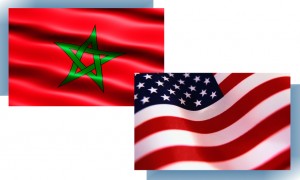Updated
USAID Expands Civil Society Capacity Building Programs in Morocco: Part II – Jean R. AbiNader

Jean R. AbiNader, Executive Director, Moroccan American Trade and Investment Center
Jean R. AbiNader, MATIC
January 6, 2014
In my previous posting, I previewed some of the key features related to youth employment programs in the recently announced Country Development Cooperation Strategy (CDCS) 2013-2017 for Morocco launched by USAID during the November visit of His Majesty King Mohammed VI with President Obama.
The major sections of the strategy with the relevant goals and objectives are summarized in this illustration.
.
Youth employment efforts include providing mechanisms for increased data and metrics to assess training efforts being made by the government, NGOs, and the private sector; more programs focused on enabling women and youth to acquire market-ready skills; and greater stakeholder engagement to “collaborate with the Ministry of Employment and other relevant actors in identifying and advancing creative and flexible working arrangements that incentivize the hiring of Moroccan youth.”
In the section on increased civic participation, USAID mentions its long-time support for civil society in Morocco and its assessment that the quickening pace of political reforms opens additional space for public policy engagement. Its particular focus is on enabling civil society, especially the political parties, to play a more robust and responsible role as outlined in the 2011 Constitution.
Engaging civil society in building Morocco’s future
As the CDCS notes, “Article 12 of the new Moroccan Constitution states that “The associations [and NGOs] interested in public matters … contribute, within the framework of participative democracy, in the enactment, the implementation and the evaluation of the decisions and the initiatives of the elected institutions and of the public powers.” Given this mandate, “Thus, civil society and political parties are now constitutionally empowered to participate in governance. By increasing the capacity of civil society to engage the government on behalf of citizens and facilitating the development of institutionalized mechanisms of civic participation in government decision-making, Morocco will be better situated to implement its reform agenda in a peaceful and sustainable manner.”
The key targets defined by USAID for capacity building are women, NGOs, and political parties. It bases its priorities on the initiatives included in the 2011 Constitution as well as the public’s simmering dissatisfaction with the political parties. As the report notes: “Moroccan citizens have long been detached from political parties due to a lack of clear policy vision or consideration for citizen involvement, particularly by women and youth, in public-policy making.” To repair this situation, “USAID will help political parties to improve their credibility by increasing the transparency and accountability of their internal operations, developing platforms reflective of citizen needs, and enhancing the involvement and leadership of youth and women in politics.”
Among the various tools that USAID has defined as part of its agenda with political parties are “the effective use of public opinion to inform policy agendas, the development of youth and women branches at the national and local levels and the development of individual plans to strengthen internal party capacity.” It is critical to Morocco’s reform aspirations that political parties become more focused on building constituencies that coalesce around specific political platforms that address local, regional, and national issues, as well as facilitate greater inclusiveness across age, gender, and ethnic lines.
The CDCS is in many ways an affirmation of the long-standing friendship and cooperation between Morocco and the US.
 It also highlights the central importance of implementing the initiatives in the 2011 Constitution for broadening citizen participation in public policy making, including regionalization, enhanced roles for women and youth, and increased stakeholder engagement across all areas of human development.
It also highlights the central importance of implementing the initiatives in the 2011 Constitution for broadening citizen participation in public policy making, including regionalization, enhanced roles for women and youth, and increased stakeholder engagement across all areas of human development.
While other North African states are struggling to maintain secure and safe public spaces, Morocco is moving ahead with its second decade of political reforms. Its results to date have earned support from the US and the international community, and the CDCS and other agreements both confirm Morocco’s path and offer partnerships to proactively move ahead.
Jean R. AbiNader is Executive Director of the Moroccan American Trade and Investment Center.
Co-published with Fair Observer (www.fairobserver.com).